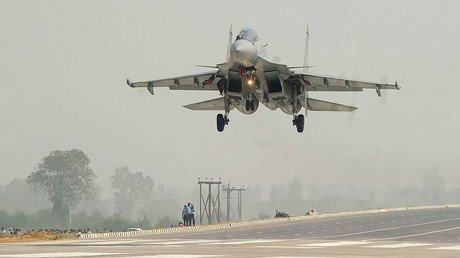China’s imports to top $2 trillion in 2018 – Beijing

The total volume of Chinese imports is going to set a fresh record this year, exceeding the two trillion dollar level, according to Song Xianmao, a senior official at China’s Ministry of Commerce.
Song added that Beijing is planning to step up efforts to boost the quality of foreign trade and further expand imports.
In 2018, Chinese authorities have lowered import tariffs on a wide range of vital goods including drugs, cars and daily necessities. The total tariff level has been reportedly reduced from 9.8 percent to 7.5 percent.
Also on rt.com China to suspend extra tariffs on US-made cars & parts for 3 monthsChina’s year-on-year imports grew 14.6 percent from January through December of the current year, according to the latest data from the country’s General Administration of Customs (GAC), as quoted by the state media.
The top official said that the government is currently working on measures that would be able to provide imports of advanced technologies, agricultural produce, as well as consumer goods and services.
Moreover, Beijing will reportedly keep on decreasing import tariffs, ease customs procedures and significantly improve policies on importing vehicles.
The government is reportedly planning to promote the imports such services as architectural design, trade logistics, research and development design, energy conservation and environmental protection, as well as to improve industrial competitiveness.
Also on rt.com China’s crude oil imports jump to new record high in NovemberOn Monday, the Finance Ministry announced plans to remove current import tariffs of five percent applied to alternative meals, used in animal feed, which include rapeseed meal, cotton meal, sunflower meal and palm meal. The measure will come into effect on January 1.
As the trade war with Washington intensified China practically stopped buying US soybeans after applying a 25 percent tariff on the product. The move has caused a stir at the global soy market.
Since Beijing resumed some purchases of soybeans from the US, and the removal of tariffs on alternative meals could reportedly help to improve the reliability of the supply of animal feed meal in China.















